Why Do Cats Purr When You Talk to Them? (The Truth Revealed)
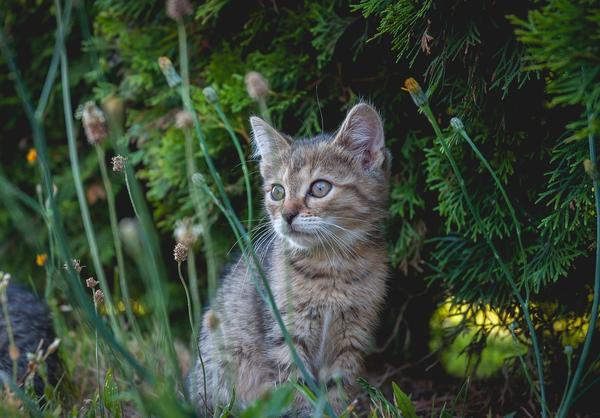
Ever wondered why your furry feline companion turns on the purr-engine when you start chatting away?
Don't worry, you're not alone.
So, why in the world do cats exhibit this strange behavior? 😸
Let's unlock this tantalizing mystery together, shall we?
Do Cats Like When You Talk to Them?
Do cats like it when you talk to them?
Definitely!
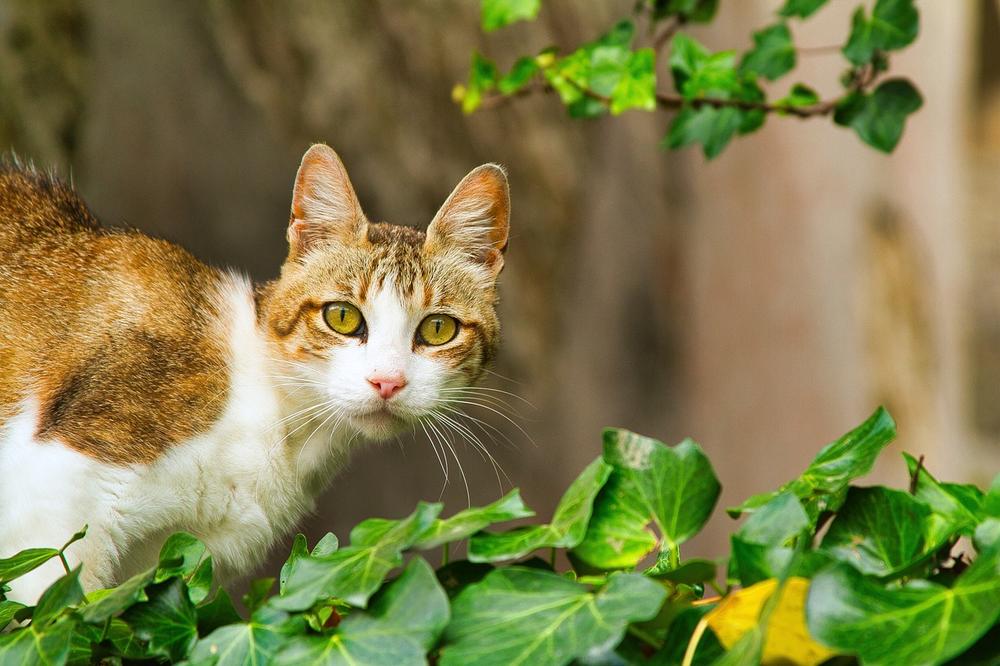
Talking to your cat is a great way to form a strong bond and make them feel like your companion.
Here's why they enjoy it:
- They recognize your voice: Cats know who you are and can tell your voice apart from others. So go ahead, say hi.
- Soft and calm tones: Cats respond well to soft and calm voices. It puts them at ease and makes them more likely to engage with you.
- Purring for comfort: When cats feel stressed or anxious, they might purr to soothe themselves. Talking to them gently helps create a calm atmosphere.
But there are a few things to avoid when talking to your cat:
- Loud noises: Cats have sensitive hearing, so loud noises can startle or bother them. Speak softly and keep the volume low.
- High-pitched voices: While it may seem cute, using high-pitched voices can confuse or agitate your cat.
- Respect their boundaries: If your cat retreats or shows discomfort, give them space. Let them approach you on their own terms.
Communication plays a vital role in any relationship, even with your furry friend.
Main points I'll expand upon further down this article:
- Cats have a unique ability to communicate with humans through purring.
- Purring is a subtle and intimate form of communication that relies on proximity.
- Cats purr at a consistent pattern and frequency between 25 and 150 Hertz.
- Purring is not just a way for mother cats and kittens to communicate, but also carries meaningful messages between cats and humans.
- Kittens purr to bond with their mothers and express affection towards humans.
- Cats emit soft purrs when they're ready to find a partner.
- Orphaned kittens can benefit from synthetic purrs produced by surrogate nursing machines.
- Purring serves as a guiding mechanism for kittens, helping them locate their mother's nourishment.
- Cats purr to communicate their affection and contentment towards humans.
- Talking to your cat has numerous benefits, including reducing stress and building a strong bond.
But have you ever wondered why cats purr when you talk to them?
Let's explore this fascinating behavior together!
How Do Cats Purr?
Cats purr as a means of communication and self-comfort, not limited to happiness but also anxiety or fear. The purring sound is triggered by special neural oscillators in their brain. Cats' purring frequency ranges from 25 to 150 Hertz, providing both audible and tangible vibrations.
You've probably thought about why cats purr.
Let me clue you in on the secret of how cats purr.
When a cat purrs, they're actually communicating and comforting themselves.
And get this, it's not just when they're happy - cats might also purr when they're anxious or scared.
Fascinating stuff, right?
But what triggers that purring sound?
Scientists are still uncovering all the details, but they believe there are special neural oscillators in a cat's brain responsible for it.
Pretty fancy-schmancy if you ask me.
Here's the kicker:
Understanding a cat's purr can vary depending on the situation.
Their emotional state or even pain levels can influence their purring.
There's more to that purr than meets the eye.
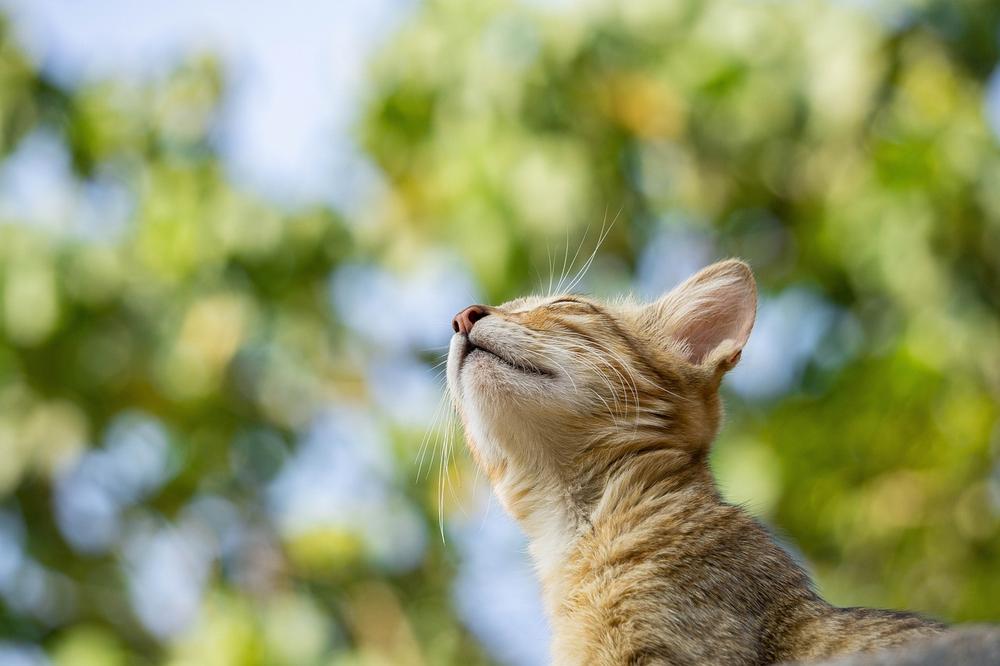
But here's something mind-blowing:
Cats aren't the only ones who know how to purr like pros.
Even some big cats and other animals within the Viverridiae family have mastered the art of purring.
Cats have perfected their purring skills because it's an intimate and subtle way for them to talk.
They rely on closeness and connection, so you better pay attention if you want to decipher your furry buddy's desires and needs.
Now, brace yourself for this amazing fact:
Cats have a consistent pattern and frequency when they purr.
Typically, their purring falls between 25 and 150 Hertz.
That means you can both hear it and feel the gentle vibrations.
Getting a little bit of purr therapy, are you?
Well, now you're armed with more knowledge about the secrets of cat purring.
It's like a cat language of its own, providing you with insight into your feline companion.
Tune in to those purr-vibrations and discover a whole new level of understanding your cat.
As a Way for Mother Cats and Kittens to Communicate
When kittens nurse, they purr to bond with their mom.
It's a beautiful moment.
And guess what?
You can also feel this special connection.
Even when they're tiny, kittens purr to show affection to humans like you.
It's pretty charming, I must say.
But here's something that will make you happy: cats also purr to say they want companionship.
When they softly purr, it means they're looking for some feline loving.
Oh, but wait, there's more...
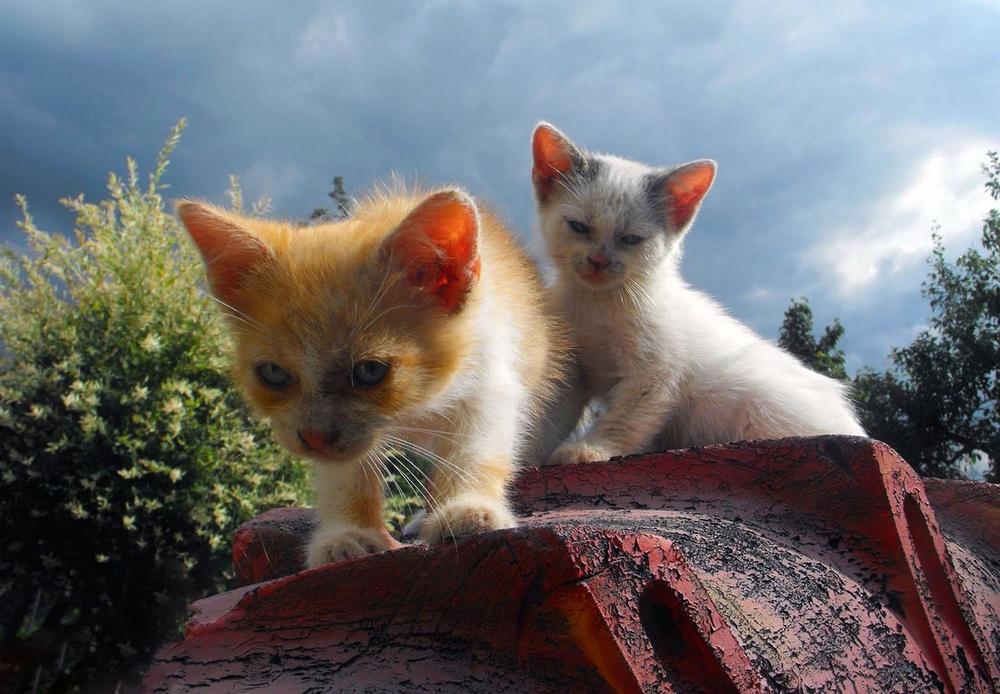
For orphaned kittens without a mother, soothing purrs from nursing machines in shelters are just what they need.
It makes them feel comfortable and secure.
And here's another interesting tidbit:
Purring helps guide kittens towards nourishment. Yep, by feeling the vibrations, they can find their mom's milk and fill their bellies.
And you know what else?
Cats use purring to greet their furry pals too.
If your cat purrs when another cat comes around, they're simply saying, "Hey buddy, welcome!"
Purring is a multi-purpose form of communication...
Boom!
Now, here's the deal...
While purring is a fascinating form of communication between cats and humans, there is still so much more to discover...
Understanding Your Cat's Contentment
| Aspect | Explanation |
|---|---|
| Factors affecting purring | Cats may also purr when they are injured, in pain, or stressed. It's important to observe other behaviors and pay attention to any signs of discomfort. |
| Emotional signaling | Purring can be a sign of contentment, but cats may also purr to communicate their needs or seek attention. Understanding their body language can help you interpret the meaning behind their purring. |
| Connection with humans | Cats often purr when they are spending quality time with their owners, indicating a sense of comfort and trust. Talking to your cat and engaging in gentle interactions can strengthen your bond. |
| Individual differences | Each cat has its own unique purring pattern and intensity. Some cats may purr more frequently or louder than others, while some may purr less often. Understanding your cat's individual preferences and behaviors will help you interpret their purring better. |
Get ready, because I'm about to spill the secrets of why cats purr when you talk to them.
It's all about understanding your furry friend's happiness, so listen up!
When your cat purrs while you shower them with love, it means they're content. They're basically saying, "You make me feel safe and loved!" It's like a warm hug in sound form.
But purring isn't just for affection.
Nope, it goes deeper than that.
Cats also purr to calm themselves down, especially in nerve-wracking situations (like going to the vet - yikes!).
It's their way of saying, "Hey, I got this. Everything's gonna be alright."
Now, don't get too excited just yet. Purring isn't always a happy sign.
Sometimes cats purr out of fear, anxiety, or even pain.
Sneaky little actors, aren't they?
Here's another twist: if your cat starts purring like crazy when they're hungry, it might mean they want attention.
It's like they're saying, "Hey, human, I need some grub!" 😺
But before you start falling for their purr-powered begging, watch out for any worrisome symptoms or strange behaviors.
These could be signs that a trip to the vet is necessary.
Oh, and did I mention that some cats have mastered the art of an urgent purr?
They know how to turn up the purr motor to express their specific desires, like wanting food.
Clever little manipulators!
So what's the point of all this purring?
Well, cats purr for various reasons - happiness, self-soothing, fear, hunger, and more.
It's their unique way of expressing themselves and letting you know what they're feeling.
Since cats can't talk (imagine if they could!), we'll just have to appreciate their purr-fect language of love and affirmation.
Keep giving them chin scratches and listen to what their purr is saying - you never know what adventures await!
And now, I want to share something that I know you'll find fascinating.
As I mentioned before, understanding why your cat purrs when they see you is crucial.
That's why I highly recommend checking out my guide, Why Does My Cat Purr When He Sees Me.
In this article, I dive deep into the reasons behind this adorable behavior, giving you the answers and insights you've been looking for.
It's a must-read for any cat lover who wants to decode their furry friend's unique language.
So, take a moment and indulge your curiosity by exploring the captivating secrets of your cat's purr.
Decoding Feline Communication: Mastering the Language of Meows and More
Understanding your cat's communication involves paying attention to their vocalizations, body language, and facial expressions. Cats rely on non-verbal cues such as tone of voice and gestures to convey their needs. By observing carefully and learning their unique language, you can create a sense of security for your furry friend.
Understanding your cat's communication is key to meeting their needs effectively.
Cats use different vocalizations, such as meows, chirps, and trills, to express themselves.
Paying attention to these specific sounds allows you to better understand what your furry friend wants.
But there's more to it than just meows!
Their understanding goes beyond words and phrases - cats are masters of reading human intentions, actions, and emotions conveyed through body language and facial expressions.
Observing carefully can help you decipher their messages more accurately.
And here's the kicker...
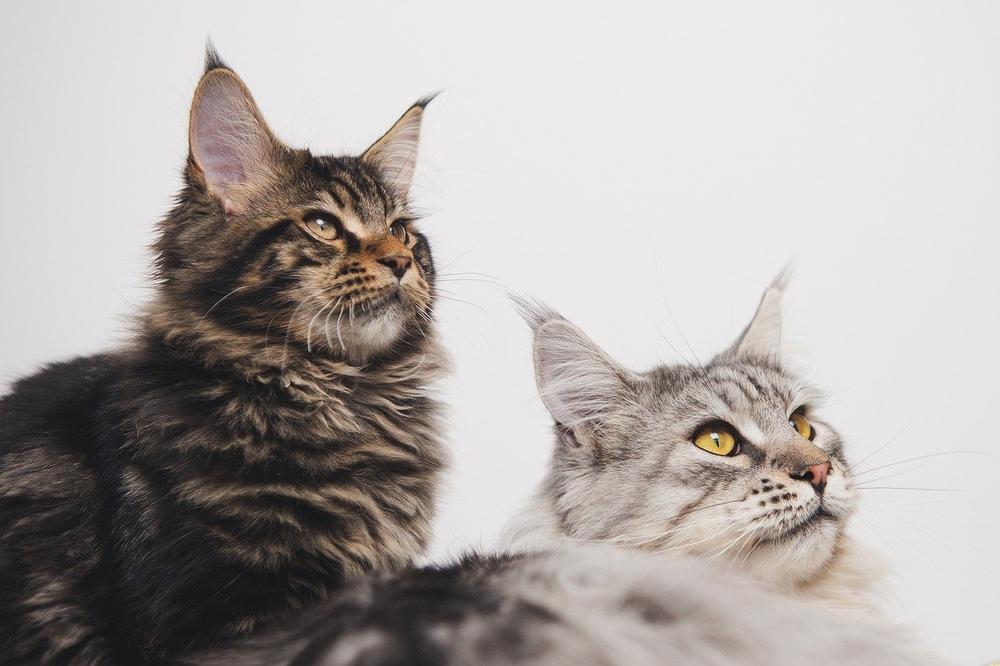
Cats actually comprehend tone of voice and body language better than verbal language itself.
They rely on these non-verbal cues even more when trying to communicate with you.
To decode what your cat needs, you need to understand the context and other specific cues relevant to felines. By doing so, you'll create a sense of security for your cat by providing appropriate responses to their meows.
Your cat wants to be understood, so take the time to learn their unique language!
Now, you might be wondering what exactly happens when you engage in conversations with your cat.
How does purring play a role in communication?
And are there any other surprising benefits to be gained from these interactions?
Let's dive deeper into the fascinating world of feline communication and uncover the answers...
Benefits of Talking to Your Cat
Having conversations with your cat is more beneficial than you realize.
Let me explain why:
- Talk to your cat, and you'll feel less stressed and anxious. It's like a mental health boost just from chatting.
- Plus, by having these little chats, you're deepening your bond and understanding with your furry friend.
- And here's the kicker: when you engage in conversation, you can pick up on subtle signs of illness. If their meows or behavior change, you'll notice early warning signals.
- Not only that, but talking to your cat sharpens your communication skills. You'll get better at decoding their unique ways of getting their message across.
- Oh, and did I mention the healing power? When your cat purrs and talks with those low-frequency vibrations, it can do wonders for both of you. Stress reduction, lower blood pressure, easier breathing, and even bone and tendon healing.
So, don't just chat with your cat because it's fun (although it totally is).
Take advantage of these incredible benefits to strengthen your bond and improve your overall well-being.
And that wraps up today's article.
If you wish to read more of my useful articles, I recommend you check out some of these: Why Does My Cat Purr Constantly, Why Does My Cat Lay on Me and Purr, How to Make a Cat Purr, Why Do Cats Purr and Knead, and Are Black Cats More Vocal
Talk soon,
-Sarah Davis